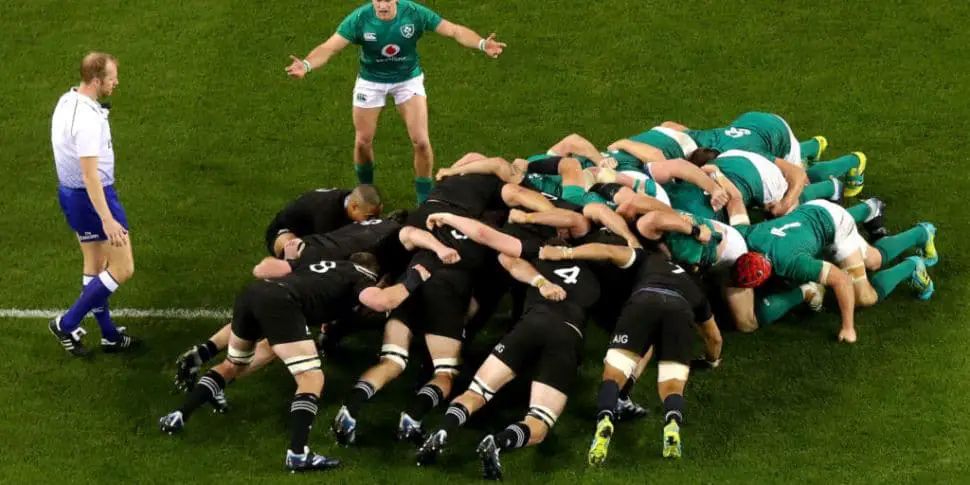Rugby union and rugby league are two different codes of rugby, each with its own unique rules, strategies, and tactics. While both sports share similarities in terms of physicality and athleticism, there are several reasons why rugby union is a tougher sport than rugby league.

Here are 10 compelling reasons why:
- Number of players on the field: Rugby union has 15 players on each team, while rugby league has only 13 players. This means that in rugby union, there is more space to cover and more players to tackle, making the game more physically demanding.
- Scrums: Rugby union has scrums, which require players to engage in a tightly packed formation and push against their opponents. This can put a significant amount of strain on players’ bodies and requires immense strength and endurance.
- Lineouts: Rugby union also has lineouts, where players lift each other up to catch the ball thrown in from the sideline. This requires a combination of strength, coordination, and timing, making it a physically demanding aspect of the game.
- Rucks and mauls: Rugby union has rucks and mauls, where players contest for the ball on the ground. These can be brutal and require players to fight for possession while being tackled and pushed by their opponents.
- Tackling: In rugby union, players are allowed to tackle above the waist, while in rugby league, tackles must be made below the shoulders. This means that rugby union tackles are more forceful and require greater physical strength and endurance.
- Scoring: In rugby union, there are more ways to score points, including tries, conversions, penalties, and drop goals. This means that the game is more unpredictable and requires players to be constantly on their toes.
- Duration of the game: Rugby union matches are longer than rugby league matches, with games lasting 80 minutes compared to 80 minutes or less in rugby league. This means that rugby union players have to maintain their intensity and stamina for a longer period of time.
- Playing surface: Rugby union is typically played on natural grass, which can be more uneven and unpredictable than the artificial surfaces used in rugby league. This can lead to more injuries and requires players to be more agile and adaptable.
- Complexity of the game: Rugby union has more complex rules and strategies than rugby league, which requires players to be more mentally engaged and adaptable. This means that rugby union players must not only be physically tough but also mentally tough.
- International competition: Rugby union has a more robust international competition than rugby league, with multiple world cups and national teams from around the world competing at the highest level. This means that rugby union players must be able to perform at the highest level under pressure.
In conclusion, while both rugby union and rugby league are physically demanding sports, rugby union is a tougher sport due to the combination of the above factors. Rugby union players must possess not only physical strength and endurance but also mental toughness, agility, and adaptability, making it one of the most challenging sports in the world.
FAQ
What is the difference between rugby league and rugby union? Rugby league and rugby union are two different codes of rugby with different rules, strategies, and tactics. Rugby union has 15 players on each team, while rugby league has only 13 players. Rugby union also has scrums, lineouts, rucks and mauls, and tackles above the waist, while rugby league has scrums, tackles below the shoulders, and no lineouts.
Which sport is more popular, rugby union or rugby league? Rugby union is generally considered to be more popular worldwide, with a larger following and more robust international competition. However, rugby league has a strong following in certain regions, such as Australia and the United Kingdom.
Which sport is more physical, rugby league or rugby union? Both sports are physically demanding and require a high level of strength, endurance, and athleticism. However, rugby union is generally considered to be more physical due to the number of players on the field, the duration of the game, and the complexity of the rules and strategies.
Are there any major differences in the way the games are played? Yes, the two sports have different rules, strategies, and tactics. Rugby league is often considered to be a faster-paced game with more emphasis on running and tackling, while rugby union is a more strategic game with more set pieces and contested ball.
Are there any differences in the types of players who play each sport? There are some differences in the types of players who play each sport, with rugby league often favoring smaller, more agile players and rugby union favoring larger, more powerful players. However, there is overlap between the two and players can often play both codes at a high level.
Which sport has a longer history? Rugby union has a longer history, with the first official rugby match taking place in 1871. Rugby league was formed as a breakaway from rugby union in 1895.
Which sport has more international competitions? Rugby union has more international competitions, including the Rugby World Cup and the Six Nations Championship. Rugby league has fewer international competitions, with the Rugby League World Cup being the most significant.
Can players switch between the two sports? Yes, players can switch between the two sports, although there may be a period of adjustment as they learn the different rules and strategies.
